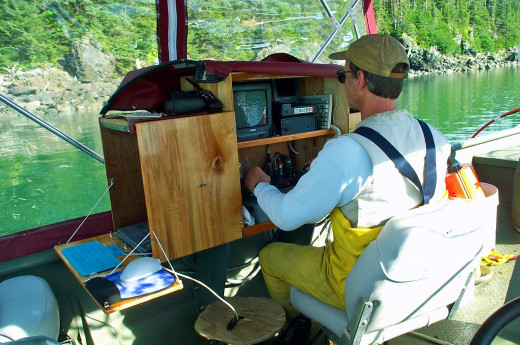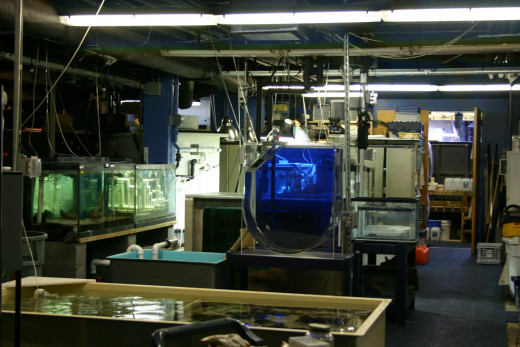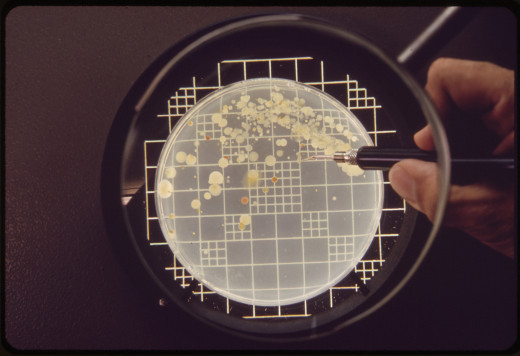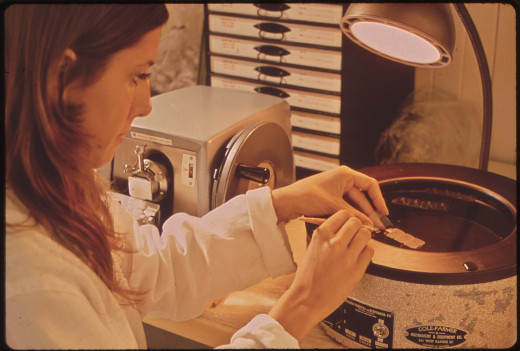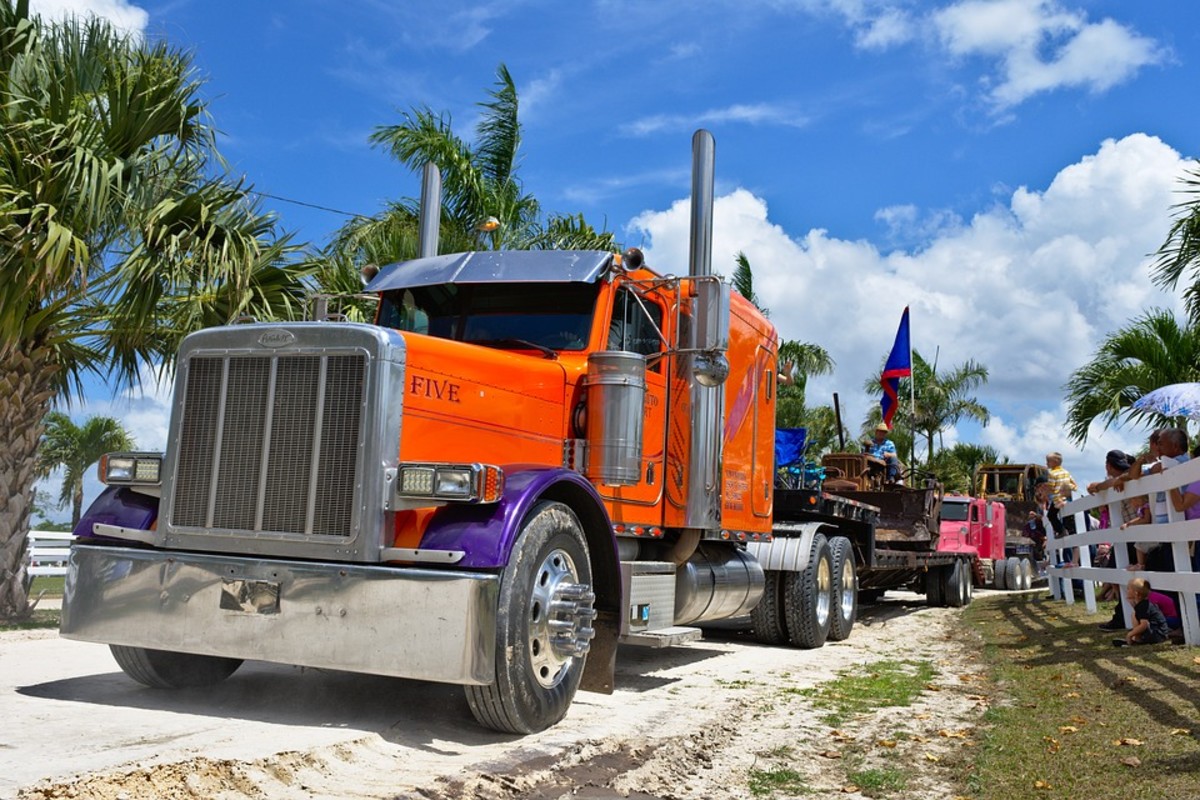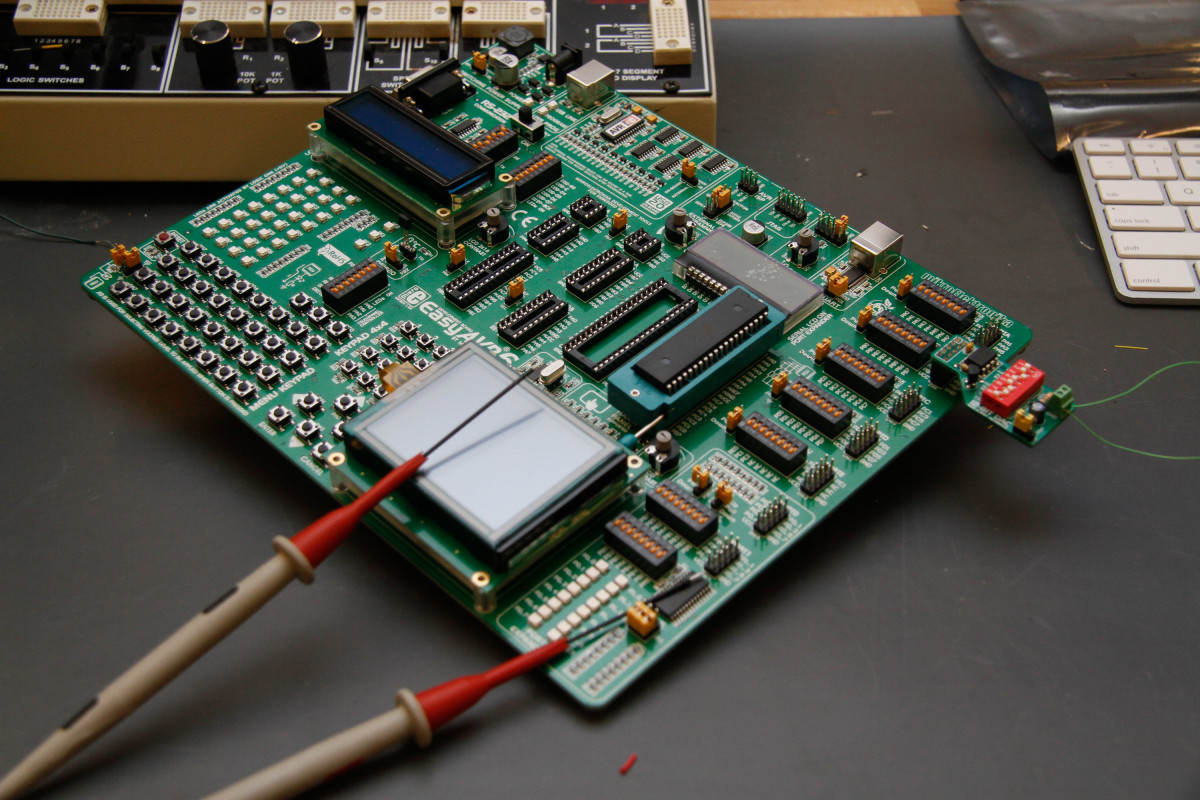Life Science Jobs and Careers
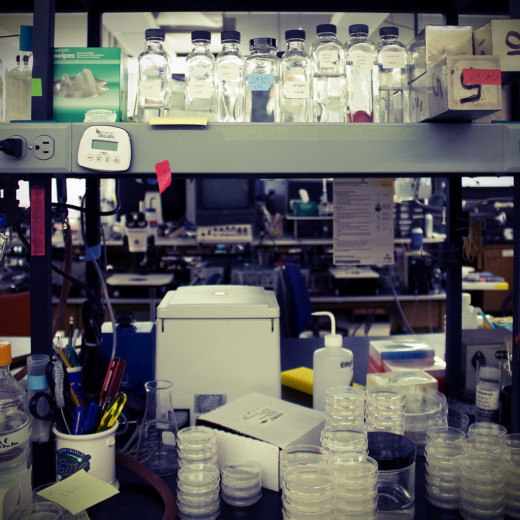
What Does The Study Of Life Science Involve?
Life science involves the study of living things including all kingdoms of life:
- Animalia
- Plantae
- Fungi
- Protista
- Monera
As such, it includes the study of humans and any related considerations including heath sciences and bioethics.
- Biology is the major area of study relevant to life sciences but
- technological advancements have created interdisciplinary opportunites with chemistry, physics and math.
- Biotechnology is a new avenue of study and biochemistry and biophysics avenues are presently available fields of education.
Biology includes the study of all five kingdoms of organisms investigating their complexity and variety.
- It includes study in biochemistry,
- pharmacological studies,
- molecular genetics and
- population genetics.
As all organisms rely on chemical processes for survival, an understanding of the chemistry of life is important to the understanding of the complexity ot life.
Biological studies may include
- health science,
- general biology,
- botany and plant sciences, and
- developmental and cell biology.
In biophysics, the patterns in life are analyzed using math and physical laws. Biophysicists ask and study questions about life such as,
- "How do protein machines work?",
- "How do systems of nerve cells communicate?",
- "How do proteins pack DNA into viruses?",
- "How do viruses invade cells?",
- "How do plants harness sunlight to make food?".
Environmental science deals with the relationships of organisms within an ecosystem or biosphere studying their interrelationships with each other and non-living components of their habitats. Environmental science studies may include
- aquatic ecology,
- fish and wildlife protection and
- ecology & evolutionary Biology.
Careers In Life Sciences
Click thumbnail to view full-size



What level of education is required for a Job in the Life Sciences?
WHAT HIGH SCHOOL PREPARATION DO I NEED?
For entry into first year studies in Life Sciences, students need six Grade 12 U/M courses including:
- English
- Advanced Functions in Math
- Calculus (not always a requirement but definitely recommended)
- Biology
- Chemistry
- Physics would be an asset especially if interested in biophysics.
What Post Secondary Preparation is Required?
The study of science in school appears to be dropping in the U.S.; therefore, there is currently a large demand for those qualified for positions in life science fields ranging from technicians to research scientists. Most jobs in life sciences require the following levels of education:
1.A diploma from college in a program related to the study of biology, biochemistry or ecological sciences or a combination of the former tends to be a minimal requirement. College programs will generally lead to a job as a technician or technologist and require two to three years of study preferably with concurrent work-placement opportunities.
2.A Bachelor or Honors Bachelor of Science in one or more of the life sciences will provide a greater scope of job choice. Work as a science teacher, college professor, bioengineer, and some research lab jobs can be achieved through this level of education.
3.A Master’s Degree or PhD results in the higher paying job opportunities including research biologist or biochemist, physician, epidemiologist and university professor.
What skills are important in Life Science Careers and Jobs?
The skills important in a career in life sciences are similar to those important to a career in the physical sciences. The following link is provided outlining those skills: Physical Science Jobs and Careers.
In addition, those looking for a career in the life sciences should have little to no aversion to blood or bodily fluids, as biology requirements almost exclusively require exposure to dissections and histology work.
Examples of Jobs and Careers in the Life Sciences
With a College Diploma
| With a BSc
| With Additional Training/Education
|
|---|---|---|
Medical Illustrator
| Agronomist
| Anatomist
|
Science Writer
| Animal Scientist
| Biochemist
|
Biotechnology technologist
| Botanist
| Biomedical Engineer
|
Advanced care paramedic
| Ecologist
| Biophysicist
|
Dietetic Technician
| Food Scientist
| Botanist
|
Occupational Therapist Assistant & Physiotherapist Assistant
| Forester
| Developmental Biologist
|
Personal Support Worker
| Horticulturalist
| Epidemiologist
|
Respiratory Therapy
| Marine Biologist
| Geneticist
|
Biomedical Laboratory Technologist
| zoologist
| Immunologist
|
Chemical and Biomolecular Engineering Technologist
| Pathology Assistant
| Marine Biologist
|
Animal Technician
| Cytogenetics Techician
| Biochemist
|
Ecological Restoration
| Microbiologist
| Forensic Anthropologist
|
Ecosystem Management Technologist
| Histologist
| Forensic Archaeologist
|
Ecosystem Management Technician
| ||
Environmental Technician
| ||
Environmental Technologist
| ||
Fish and Wildlife Technician
| ||
Fish and Wildlife Technologist
| ||
Occupational Therapist Assistant and Physiotherapist Assistant
| ||
Pharmacy Technician
| ||
Practical Nursing
| ||
Urban Forestry Technician
|
Median Wages Earned In Life Science Careers
Field
| Median Salary
|
|---|---|
Academic
| $78,000*
|
Industry
| $116,000*
|
Animal Scientist
| $46,078
|
Animal Technician
| $32,892
|
Biotech Scientist
| $85,789
|
Biochemist
| $46,831
|
Biomedical Engineer
| $50,111
|
Biophysicist
| $59,367
|
Food Scientist
| $64,209
|
Microbiologist
| $41,122
|
Pathology Assistant
| $72,699
|
Scientific Artist
| $41,256
|
*As of 2006 from http://sciencecareers.sciencemag.org/. Rest of data as of September 2012 from Salary.com.
Education Resources for Life Science Jobs and Careers
- Pushing STEM Students Past the 4-Year Degree - Online Degree Programs.com
When it comes to education and job creation alike, science, technology, engineering, and mathematics (STEM) seem to be top priority right now. - School of Life Sciences & Chemical Technology
- PhDs in Life Sciences, Medicine & Health - PhDportal.eu
This field of science involves studying of living organisms, i.e. human beings, animals and plants. - Life Sciences | University of Toronto Mississauga
All Life Science programs lead to an Honours Bachelor of Science U of T Mississauga also offers a number of programs relating to Biology including Biomedical Communications, Biotechnology, Behaviour, Genetics and Neurobiology. - Life Sciences at Massachusetts Institute of Technology | MIT | Cambridge, MA
Life Sciences undergraduate education and research opportunities now come under a new, large umbrella at Massachusetts Institute of Technology, Cambridge, MA. This page explores the many disciplines at MIT that offer courses focused in Life Sciences.
Job and Career Prospects in Various Life Sciences
- Sea Grant - Marine Careers
Marinecareers.net will introduce you to a wide range of marine career fields and to people working in those fields - Life Sciences jobs
660 Life Sciences jobs to view and apply for now with New Scientist Jobs - Access Excellence: Biotech
Provides a list of life science related jobs and links to further information about each job and in some cases career opportunites are posted. - LSCDS - Life Sciences Career Development Society
The goal of our organization is to introduce possible career paths for graduate students in life sciences at the University of Toronto - Lifesciencejobs.com
Lifesciencejobs.com is an internet-based job platform for the lifescience industry - Pharmaceutical Sales Jobs, Biotech Research Careers & Current Events
Pharmahorizons: listing careers in the life sciences. Helping to advance careers; eLearning solutions, recruitment, testing and selection. - Life Sciences jobs in Canada | Canada jobs and recruitment | Hays - Recruiting experts worldwide
Find permananent Life Sciences jobs in Canada with Hays - Recruting experts in Life Sciences. - http://www1.salary.com/Science-and-Research-Salaries-2.html#E
What are the average salary ranges for jobs in the Science and Research category? Well there are a wide range of jobs in the Science and Research category and their pay varies greatly.

